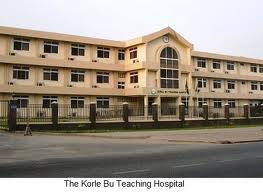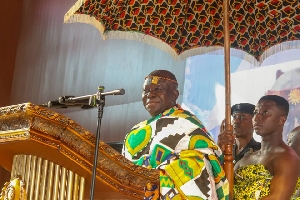Health News of Thursday, 28 April 2016
Source: dailyguideafrica.com
Korle-Bu kidney patients cry out
 File photo
File photo
Kidney patients receiving dialysis treatment at the Korle-Bu Teaching Hospital (KBTH) Renal Dialysis Unit are unhappy about the high cost of treatment they have to bear for the management of their health condition.
This was in reference to a notice of an upward review on dialysis cost from GHC190 to GHC 260 per session, indicating that patients will have to pay an extra GHC70.
The increment and its attendant high cost of treatment is raising concern among kidney patients who are wondering if the authorities want to fast-track their deaths.
The upward revision of dialysis fees contained in a notice signed by Dr Charlotte Osafo, head of the KBTH Renal Dialysis Unit, takes effect from May 1, 2016.
The notice, dated April 18, 2016, indicated that the increment was due to the current price hikes in procuring consumables from Germany for the dialysis treatment.
“Approval has been granted by management of the hospital to increase treatment cost of dialysis from current cost of GHC190 to GHC260… Any inconveniences caused is deeply regretted,” portions of the poster read.
However, patients who undergo dialysis treatment three times a week are complaining about the new fees, mentioning that it would compound the already huge financial burden they have to bear.
A patient of the unit who spoke to DAILY GUIDE said the increase of dialysis fees is outrageous and a calculated attempt by the unit to exploit patients.
He said the new dialysis fees to be added to the first consultation fee of GHC200 with subsequent reviews of GHC 150 coupled with the weekly cost of GHC370 and GHC620 injections are too high.
He also raised concerns about the cost of medicine at the unit, indicating that the same medicine for treatment costs less outside the hospital as compared to the ones sold at the hospital.
Ideally, medicines at the health facility are supposed to be relatively cheaper because of government’s subsidy, but in this case it is higher in the hospital.
“In the renal unit, I bought the medicine for GHC620 but when they run out of stock and I bought it from a pharmacy shop outside it was GHC240,” he narrated.
A source from the hospital management who spoke to DAILY GUIDE said, “We buy the regent from outside and so if there are variations we have to make those changes because otherwise we will not be able to buy them.”
Enoch Opoku Gyimah, co-founder of the Kidney Foundation, reacting to the increment of charges for dialysis, said the unit had been affected by the poor performance of the cedi to dollar as consumables for dialysis which are procured outside the country keep increasing.
He said the consumables are not reusable and must, therefore, be discarded after every use; hence, it was rational for the unit to increase fees to be able to sustain its activities.
Mr Opoku Gyimah said KBTH and Komfo Anokye Teaching Hospital (KATH) charge the same fees for dialysis treatment, adding that the Police Hospital is the only facility running a kidney dialysis on GHC170 per session.










